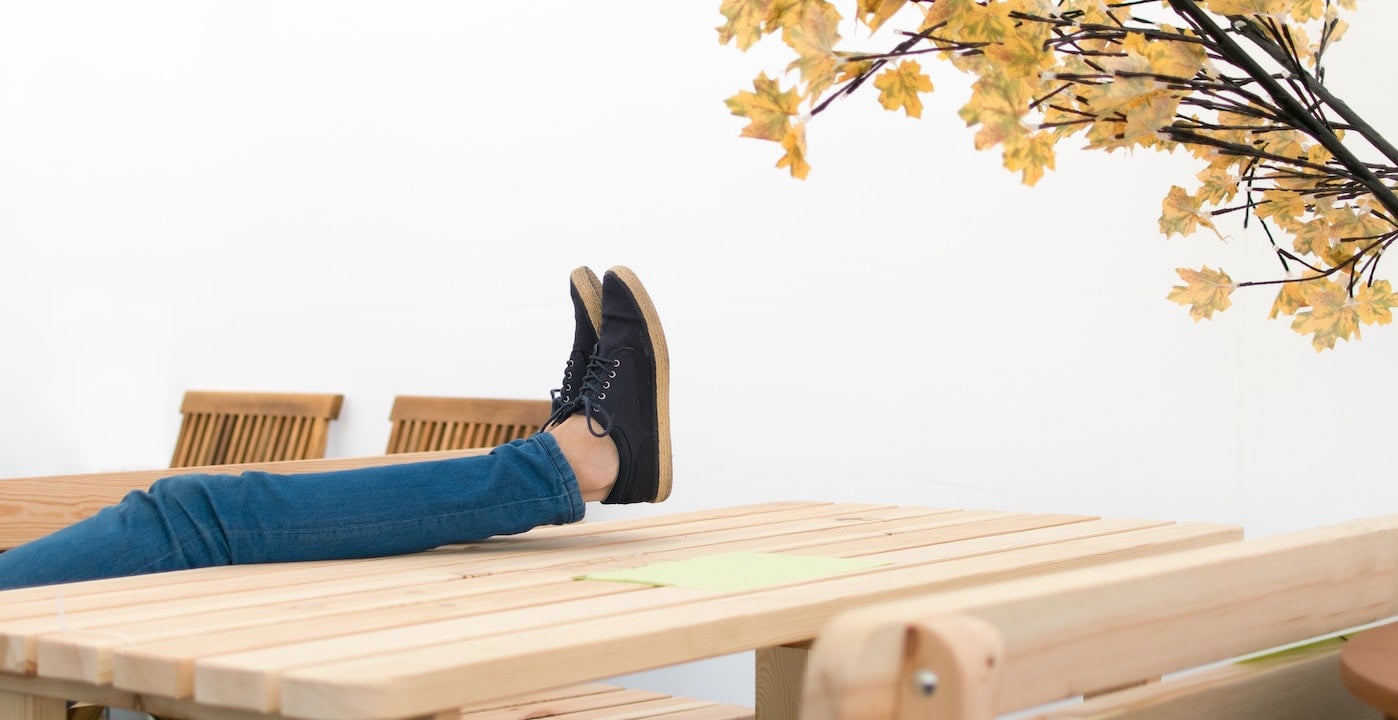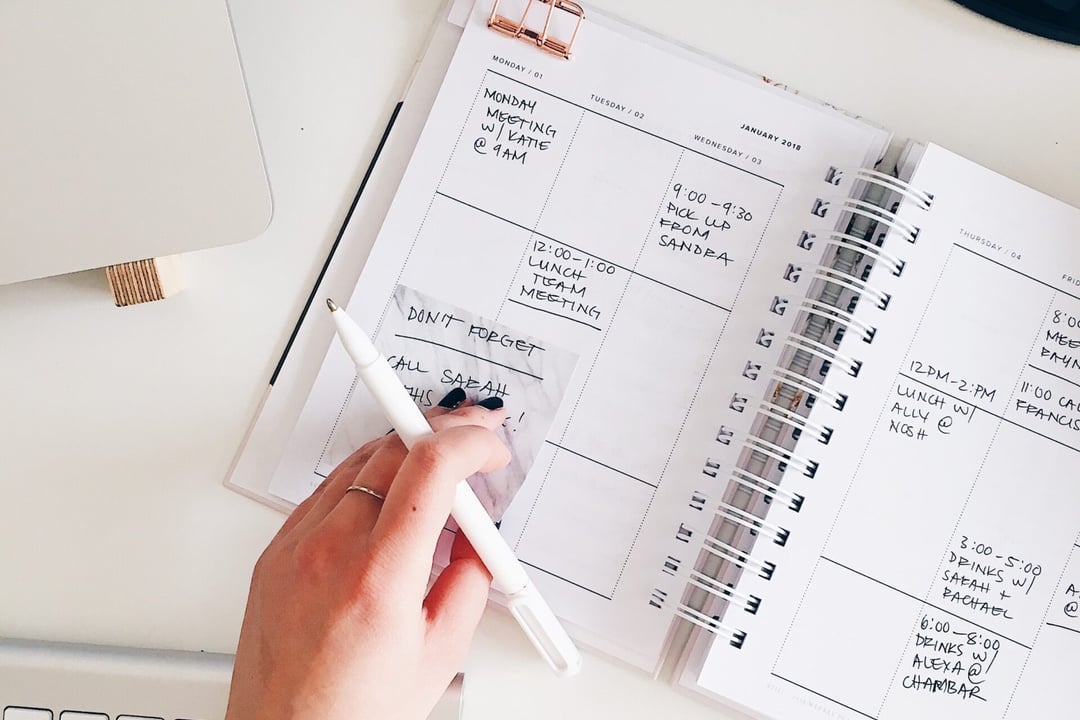Sorry Marie Kondo, this is one thing I’m not throwing away.
As a self-improvement junkie, I don’t think I’ll ever come to a place of satisfaction with my own level of knowledge or performance. I don’t try to overdo it (like, settle down Ironman runners, amiright?) but my thirst for more quality, more impact, more connection, more reach …. Just, MORE, seems it will never be quenched.
“Perfectionist” is an undesirable label, but it’s one that I’m realizing I have to own.
Perfectionistic self-improvement has selfish side-effects. The better and smarter I get, the less likely I am to say something dumb, make poor decisions, or steer someone down the wrong path. I feel I have made enough mistakes to last me a lifetime. I would love to never make any again. “Messing up”, in private or in public, is the worst possible situation for a perfectionist like me. Let me get real here … much of my striving for improvement is fear-based rather than accomplishment-oriented. Even as I start to write this paragraph, my stomach turns and my chest tightens, recalling just a few of my f*ck-ups over the years ….
- That time when I thought sending a 11-paragraph-long stern email to all my direct reports would inspire them to show up earlier and work harder. ????
- That time I tried to make a joke and it was racially insensitive. ????
- That time I sacrificed my standards so that I could be seen as “cool” by my older, male colleagues (you guessed it – strip club). ????
- That other time I tried to make another joke and it was racially insensitive. ????
- That time I kept hounding a prospect after they said no, because I was so sure they needed my product. ????
- That time I gossiped about a coworker because I thought it would be a strategic career move. ????
The list goes on. There’s a voice SCREAMING inside my head right now, that I should delete this post and bury my laptop and never go on the internet again for fear of what you might think of me and all of these shameful actions from my past.
But there is a braver, more mature part of me that has learned the extreme power of vulnerability. The way I have learned to take responsibility for my own mistakes is through others being vulnerable about theirs. That includes not only the guides and mentors that I’ve personally known in my past, but also the recent transparency of influential leaders who have publicly admitted where they’ve fallen short, particularly in the areas of social justice and racial equality.
I’ve been thinking about publishing a post about my personal blunders for many months now, because transparency is one of my fundamental guiding principles. But I’ve always had a great excuse why the time “wasn’t quite right”. Nudged recently by a dear family member who is holding me accountable with tough love, I realize the time is now. Well, more accurately, as the Chinese proverb says, “The best time to plant a tree was 20 years ago. The second best time is now.”
So maybe you are like me and you have a closet full of messes and mistakes. What is the best way to handle them? Should we dump them all out, thank them for their time in our past, and then get rid of them, Marie Kondo style? Tempting – as we are taught the benefit of “forgive and forget”. We are told to tidy up, to move on to bigger and better things, and to just Let It Go. (I mean – I grew up Catholic and we believed that once you spoke your sins out loud to a robed man in a dark confessional box, you stepped out as pure as the untouched snow. So this runs deep, y’all.)
But I think there can be a benefit to holding on to our sins of the past – to regularly drag them out, dust them off, and examine them. It sounds emotionally draining, I know, but worthwhile in our self-improvement journey.
Sample Self-Examination: I’ll never send an 11-paragraph email to a team again … but what was it that made me send it in the first place? Was it my lack of confidence in managing conflict, my uncertainty in being an inspirational leader, the narrative that no one would respect me as a young woman?
These underlying issues and ignorances that led to the poor decision in the first place are what’s really important. This is the baggage that has to be acknowledged and resolved head-on so that we don’t keep repeating history.
Speaking of repeating history. It is with great shame and discomfort that I admit, I recently made (another) insensitive joke in front of a small group of my peers – one that compared my personal struggles to that of the Black experience. As soon as it came out, I slammed my hand over my mouth, and immediately apologized to the group – additionally sending a personal apology to the woman of color in the group afterwards. While the apology was graciously received, I realize the damage had been done. Even a minor comment spoken among a small private group is fuel poured on top of this already-raging-dumpster-fire of white supremacy culture. Over the last few years I would have called myself relatively “progressive” – having lived in the diverse metropolitan city of Atlanta for over a decade, I’ve not only gained exposure to a variety of cultures, orientations, and socioeconomic situations different from my own, but I’ve been intentional about ensuring diversity in both my personal and professional life. Of all the injustices we experience in the world, racism is by far the most personally heartbreaking to me. And yet I am obviously still light years away from embodying the antiracist behavior that I profess to support.
This most recent blunder really highlights my need to spend more time examining my beliefs and narratives about race, and to be more open to examination from others as well. If I am to finally learn my lesson here, it will be the result of deep, heavy, uncomfortable work – the kind recommended by Robin DiAngelo and Resmaa Menaken in this podcast.
Realistically, I doubt I’ll ever be anywhere close to “perfect” in this area, but I am hungrier than ever to be the kind of human who empowers others and amplifies marginalized voices. I want to drive real positive impact in the world, to create a place where all can thrive equally, regardless of the amount of melanin in their skin. And I can’t start doing any of this until I take full ownership of my past mistakes, my current imperfections, and my future fallibility. An unwillingness to participate in this (or a refusal to create an environment that supports this) has directly contributed to perpetuating systemic oppression. Now, I’m endorsing a public exploration of mistakes not in order to obtain some kind of “absolution” from the BIPOC community, but to help spread the power of vulnerability in our collective search for wholehearted and productive living. Confessing our mistakes is not the end of the journey, it is the beginning.
Readers, will you join me in holding yourself and others accountable in a loving, curious, but focused way? Will you join me in wearing our mistakes on our sleeve, so that we can stop pretending, start to humbly learn, and continue the journey to be better? I want to take this opportunity to invite any and all of my readers to reach out with any comments or questions you may have, as The Fiery Feather continues to facilitate dialogue on ways to share feedback, manage conflict, and build empathy. I commit to an open-door/open-calendar policy to participate in hard conversations that can lead to growth and development, and create a world that works better.

Theresa M. Ward
I love leading workshops about everything from time management hacks to mindful goal setting. And I thrive on propelling projects towards a successful finish line with an artillery of cohesive tips & tools. Read more…
Keep In Touch!














